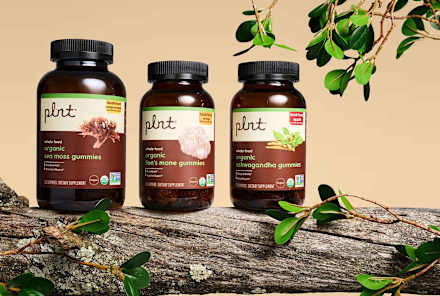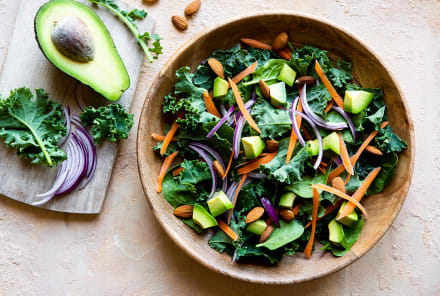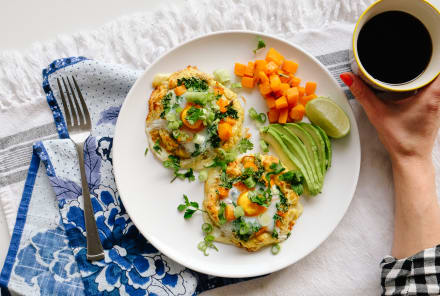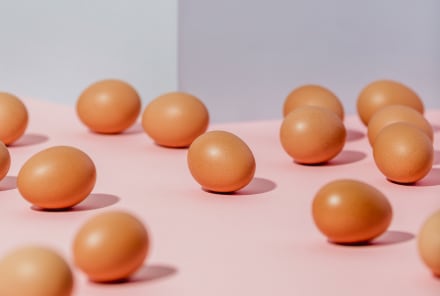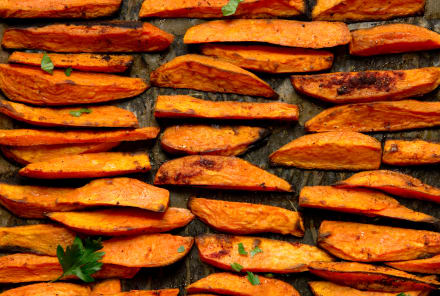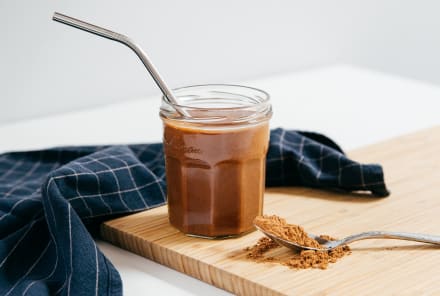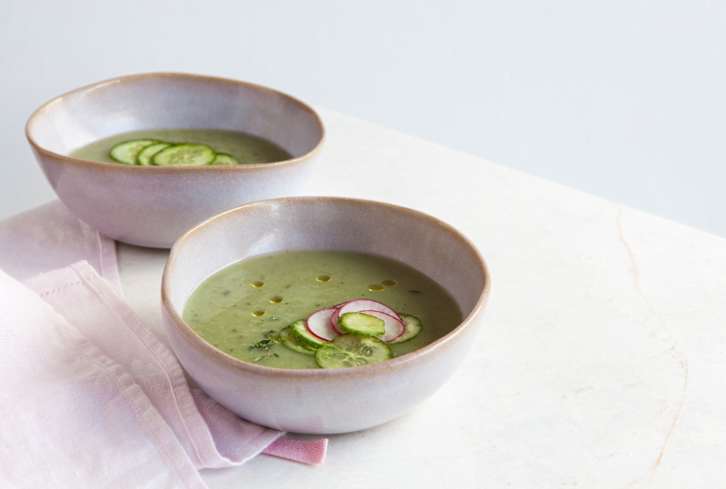Advertisement
A Doctor Shares: The Best Snack to Keep Your Gut Healthy

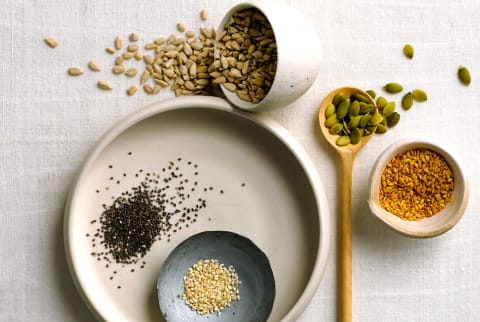
Whether or not you’re on vacation, snacking is the one area that gets most of my patients into trouble. Doing it incorrectly can create dysbiosis (gut imbalances), weight gain, insulin resistance, and many other gut problems. On the other hand, mindful snacking with the right foods can keep you full, heal your gut, and help you eat less at meals.
Health professionals disagree on whether people should snack, as well as the amount and timing thereof. To add to the confusion, some studies show snacking can benefit you, while others show it can create obesity and other problems.
Rather than take a one-size-fits-all approach, I believe snacking can certainly be a part of a gut-healing meal plan (like my signature gut reboot) when you make smart choices. Food is powerful medicine that can help or hurt your gut.
With those principles in mind, these five strategies help my patients become more aware of snacking mindfully to get lean, feel better, avoid overeating, and heal their gut:
1. Beware of food additives and sensitivities.
More likely than with meals, I’ve found food sensitivities and additives slip in during snacking. Gluten, dairy, and soy are big offenders, but the biggest snacking obstacle for most people is sugar in all its many forms, including "healthy" sugars like agave or honey. Why is sugar so problematic? Sugar contributes to mood swings, including depression and irritability, symptoms of premenstrual syndrome (PMS), migraines, body aches and pains, chronic diseases like diabetes and heart disease, and obesity. Be especially aware about food sensitivities that hide in "healthy" snacks, like soy or dairy in protein bars or flavored almonds.
2. Ask yourself why you're snacking.
Many patients admit to habitually reaching for sugar-laden snacks when they’re bored or down, like eating ice cream in front of the TV at night or late-night snacking in the kitchen. On the other hand, mindful snacking can help keep your metabolism moving and prevent you from arriving at dinner hungry, which often leads to poor food choices and overeating.
3. Be especially careful with nighttime snacking.
"I did so well during the day," patients say, "and then I opened the freezer at 10 p.m. and that half-eaten pint of butter pecan was just sitting there." Nighttime snacking isn’t always bad if you’re not doing it out of habit (in other words, you’re genuinely hungry) and when you’re eating the right foods. Studies show1 eating a healthy snack at night can help you lose weight and be healthier. As an alternative, a nighttime herbal tea blend with relaxing herbs, like valerian root and chamomile, can help fill you up while relaxing your body and mind, ending any hunger pangs so you can skip that late-night snack altogether.
4. Find nonfood alternatives.
If you’re snacking out of habit, making the wrong nighttime choices or gaining weight while snacking, I recommend instead relaxation techniques like meditation. These reduce cravings for sugary or salty snacks and help you relax, especially at night before going to sleep. Once you get into this habit of calming your mind rather than reaching for food, you’ll have more energy during the day and sleep better at night.
5. Set a curfew.
Regardless of whether you snack at night, I recommend avoiding snacking one to two hours before you go to bed. Or better yet, do a 12-hour intermittent fast from dinnertime until breakfast the next morning. Eating too close to bedtime—even with healthy snacks—can interfere with sleep and even make you gain weight.
I recommend three meals (breakfast can be a protein smoothie) and two optional snacks daily. I say optional because some people do better without snacking, some days you might not want a snack, and others have no desire to snack. When healthy snack options are limited, like during a day of travel, preplanning is important, but it can also be a good excuse to give your gut a rest, keeping meals simple and small while drinking plenty of water to stay hydrated during flights.
Whether I’m traveling or stuck at the office and know dinner isn’t for hours, I’ll reach for this delicious, gut-healing, hunger-curbing snack that helps me feel full and focused so I can help patients optimize their gut health. Make them at home and enjoy these crackers anytime on-the-go.
Flax Super-Seed Crackers
Loaded with gut-cleansing fiber, trace minerals, and healthy fats, these crackers are great for serving on the side with salads and soups or as a quick snack between meals.
Makes 20 crackers
Ingredients
- 2 cups ground flaxseed*
- 1 cup filtered water, divided
- 2 tablespoons hulled pumpkin seeds
- 2 tablespoons hulled sunflower seeds
- 2 tablespoons hulled sesame seeds
- ½ teaspoon salt
- ½ teaspoon black pepper
- Dash of cayenne pepper (optional)
*You can use ground chia or sesame seeds in place of the ground flaxseed.
Method
- Preheat the oven to 400°F. Line a baking sheet with parchment paper.
- In a large bowl, combine the flaxseed and ½ cup of the water. Mix together until a dough begins to form.
- Gradually add up to ½ cup additional water to moisten the dough and make it more workable; make sure the dough does not become too wet.
- Mix in the pumpkin, sunflower, and sesame seeds until they are evenly distributed.
- Spread out the dough on the baking sheet so it is approximately ⅛ to ¼ inch thick. Sprinkle the dough evenly with the salt and pepper; add cayenne, if desired, for an extra kick of spice.
- Cut the dough into 20 squares and bake for 20 to 30 minutes or until the crackers are crisp and the edges are browned.
- Store in an airtight container.
Tip: These crackers go great with hummus, which you can easily keep in the fridge at the office.

Vincent M. Pedre, M.D., medical director of Pedre Integrative Health and president of Dr. Pedre Wellness, is a board-certified internist in private practice in New York City since 2004. He completed his bachelor’s degree in Biology at Cornell University before attending the University of Miami School of Medicine and completed his residency in Internal Medicine at the Mount Sinai School of Medicine. He has appeared on the Martha Stewart Show and ABC and is the author of Happy Gut: The Cleansing Program to Help You Lose Weight, Gain Energy, and Eliminate Pain. Dr. Pedre is a clinical instructor in medicine at the Mount Sinai School of Medicine and is certified in yoga and medical acupuncture.
More from the author:
Functional Nutrition Training
Check out Functional Nutrition Coaching
A cutting-edge nutrition deep dive taught by 20+ top health & wellness experts
Learn moreMore from the author:
Functional Nutrition Training
Check out Functional Nutrition Coaching
A cutting-edge nutrition deep dive taught by 20+ top health & wellness experts
Learn more
Vincent M. Pedre, M.D., medical director of Pedre Integrative Health and president of Dr. Pedre Wellness, is a board-certified internist in private practice in New York City since 2004. He completed his bachelor’s degree in Biology at Cornell University before attending the University of Miami School of Medicine and completed his residency in Internal Medicine at the Mount Sinai School of Medicine. He has appeared on the Martha Stewart Show and ABC and is the author of Happy Gut: The Cleansing Program to Help You Lose Weight, Gain Energy, and Eliminate Pain. Dr. Pedre is a clinical instructor in medicine at the Mount Sinai School of Medicine and is certified in yoga and medical acupuncture.
Watch Next
Enjoy some of our favorite clips from classes
Enjoy some of our favorite clips from classes
What Is Meditation?
Mindfulness/Spirituality | Light Watkins
Box Breathing
Mindfulness/Spirituality | Gwen Dittmar
What Breathwork Can Address
Mindfulness/Spirituality | Gwen Dittmar
The 8 Limbs of Yoga - What is Asana?
Yoga | Caley Alyssa
Two Standing Postures to Open Up Tight Hips
Yoga | Caley Alyssa
How Plants Can Optimize Athletic Performance
Nutrition | Rich Roll
What to Eat Before a Workout
Nutrition | Rich Roll
How Ayurveda Helps Us Navigate Modern Life
Nutrition | Sahara Rose
Messages About Love & Relationships
Love & Relationships | Esther Perel
Love Languages
Love & Relationships | Esther Perel
